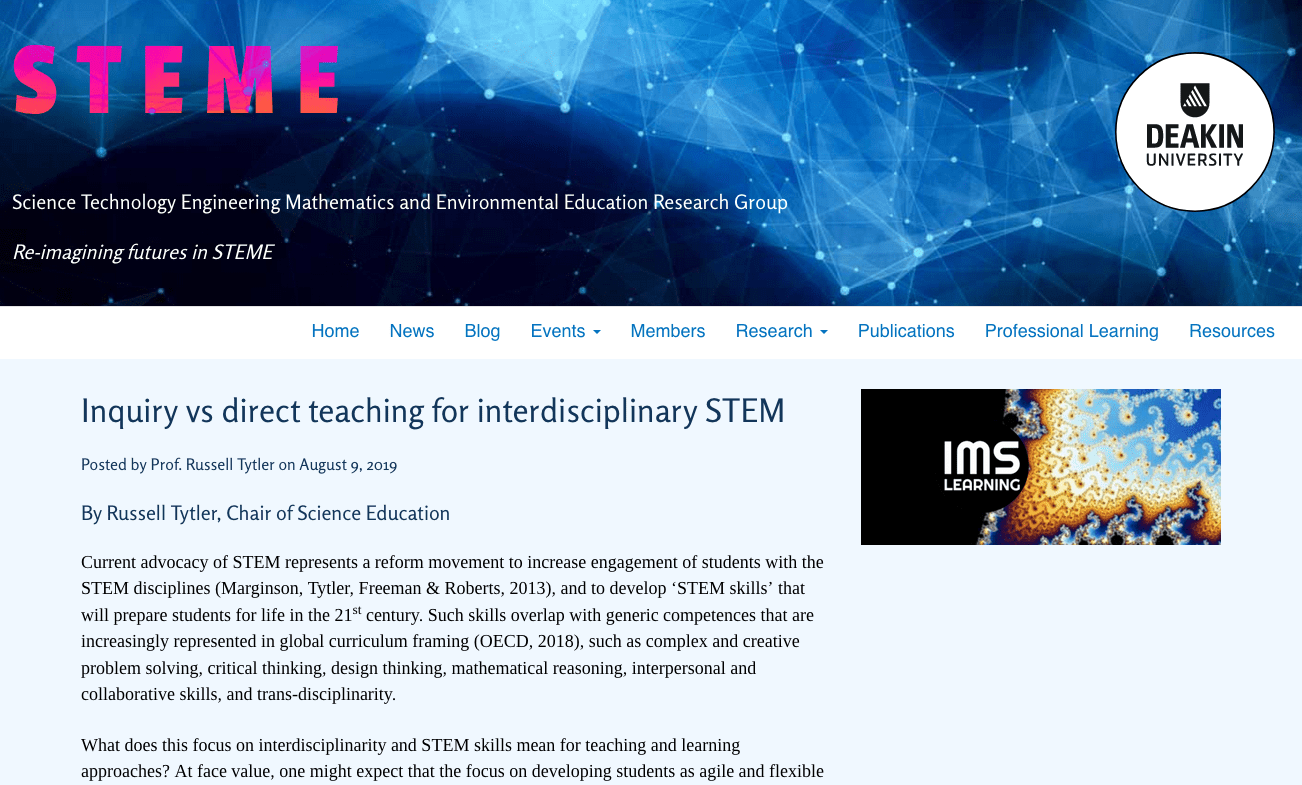While it is true that we all operate within a number of externally and internally imposed constraints, it is also true that we make time for what we truly value. This tension is captured well in the concluding paragraph of the very interesting Inquiry vs direct teaching for interdisciplinary STEM, by Professor Russell Tytler (9 August 2019), Chair of Science Education at Deakin University:
Direct teaching advocates the gradual ceding of control to students after they have been taught techniques, and monitoring of their work, rather than our staged process of exploration, invention, evaluation and revision. The payoff, we argue, is that students come to know the disciplinary ideas in richer ways. We have found, however, that the approach requires of teachers both significant knowledge of the science and mathematics, and command of a pedagogy involving negotiation and refinement of student ideas, compared to ‘telling’. It also takes more time. However, if we are serious about developing STEM skills for interdisciplinary problem solving, we argue there are no shortcuts.
It is important to note that Tytler is speaking about students at school, and that this tension is obviously not limited to STEM.
